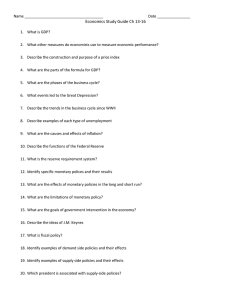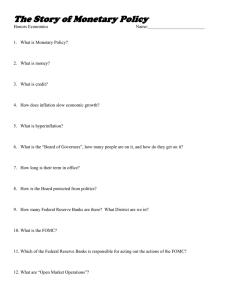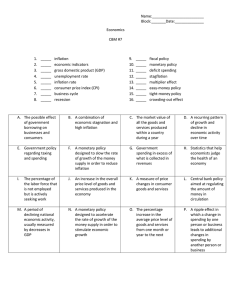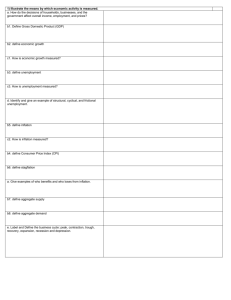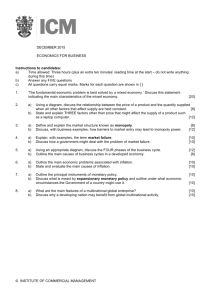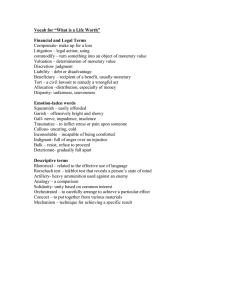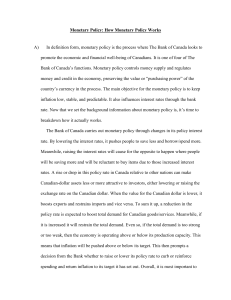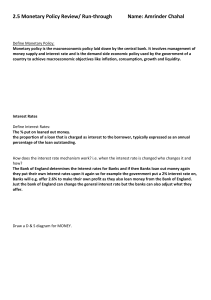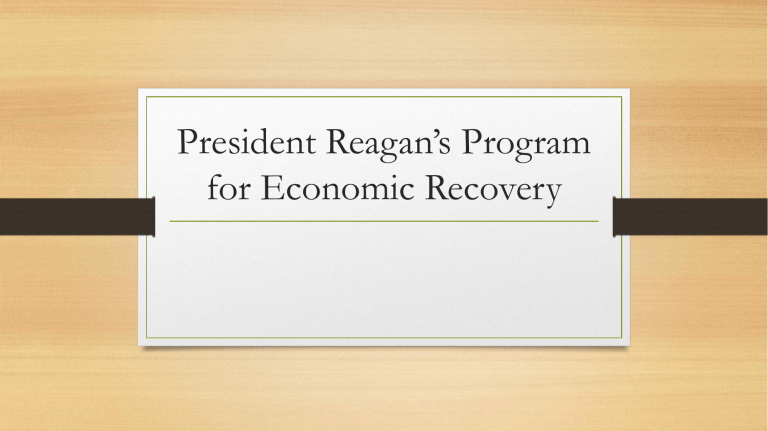
President Reagan’s Program for Economic Recovery • The plan is based on sound expenditure, tax, regulatory, and monetary policies. It seeks properly functioning markets, free play of wages and prices, reduced government spending and borrowing, a stable and reliable monetary framework, and reduced government barriers to risk-taking and enterprise. This agenda for the future recognizes that sensible policies which are consistently applied can release the strength of the private sector, improve economic growth, and reduce inflation. • The plan consists of four parts: (1) a substantial reduction in the growth of Federal expenditures; (2) a significant reduction in Federal tax rates; (3) prudent relief of Federal regulatory burdens; and (4) a monetary policy on the part of the independent Federal Reserve System which is consistent with those policies. These four complementary policies form an integrated and comprehensive program. • The leading edge of the program is the comprehensive reduction in the rapid growth of Federal spending. • The second element of the program, which is equally important and urgent, is the reduction in Federal personal income tax rates by 10 percent a year for 3 years in a row. Closely related to this is an incentive to greater investment in production and job creation via faster tax write-offs of new factories and production equipment. • The third key element of our economic expansion program is an ambitious reform of regulations that will reduce the government-imposed barriers to investment, production, and employment. • The fourth aspect of the comprehensive economic program is a monetary policy to provide the financial environment consistent with a steady return to sustained growth and price stability. The planned reduction and subsequent elimination of Federal deficit financing will help the Federal Reserve System perform its important role in achieving economic growth and stability. • The ultimate importance of this program for sustained economic growth will arise not only from the positive effects of the individual components, important as they are. Rather, it will be the dramatic improvement in the underlying economic environment and outlook that will set a new and more positive direction to economic decisions throughout the economy. Protection against inflation and high tax burdens will no longer be an overriding motivation.
